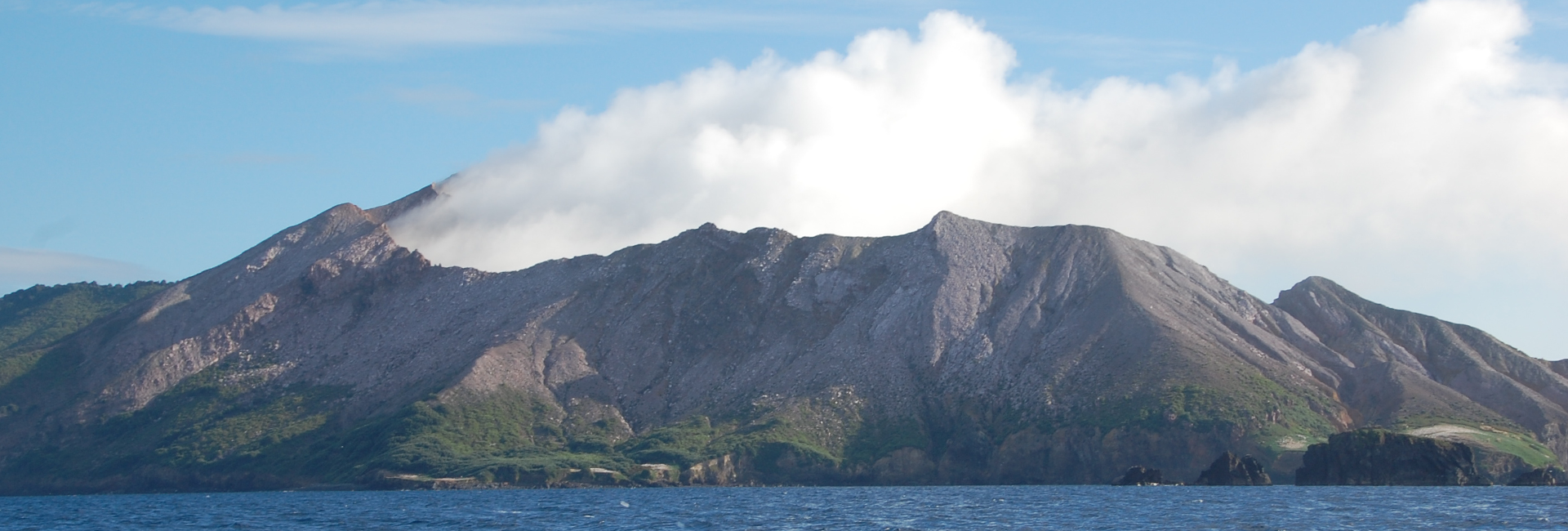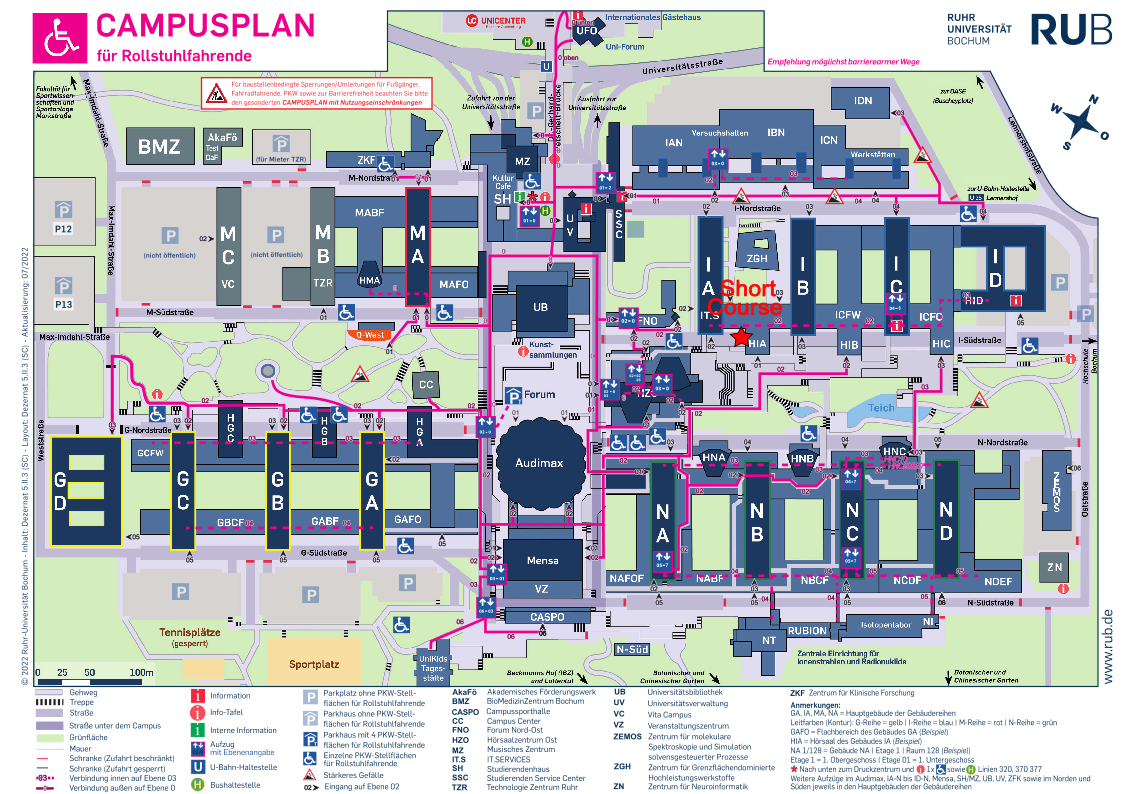Diffusion Workshop – 06-10 October 2025
We would like to draw your attention to a short course on the
Application of diffusion studies to the determination of timescales in geochemistry and petrology (diffusion chronometry / geospeedometry)
to be held at the, Ruhr-Universität Bochum, Germany. The course is part of the collaborative Research Unit (FOR 2881), organized jointly by the universities of Bochum and Hannover and will be run by staff members of the two institutions.
About the Workshop
Content: This course is designed for petrologists, geochemists, volcanologists, and planetary scientists interested in extracting timescale information from rocks. Such information might include the residence times of magmas in reservoirs, the cooling or exhumation rates of rocks, the durations of terrestrial and extraterrestrial metamorphism (e.g., meteorite parent bodies), the duration of fluid flow (e.g., metasomatism by fluids/melts in the crust or mantle), and the evaluation and application of closure temperatures. The focus will be on high-temperature processes, making it relevant for those interested in high-temperature thermochronometry, diffusion chronometry, and geospeedometry. The course will run from Monday (06 October) till Friday (10 October), with a combination of lectures to introduce the topic and accompanying hands-on practical exercises. A more detailed course schedule and program will follow soon on our webpage
Goals and expected profile of participants: Previous experience with numerical modelling or programming is not required, but an interest in learning the rudiments of these tools is. One of the objectives of the course, however, is to demonstrate how much it is possible to accomplish without any or with very little programming. The basic information on diffusion that is required for carrying out such calculations will be provided, but this is not a course designed to cover all aspects of diffusion in minerals and melts.
In addition to instruction via lectures, a major component of the course will be hands on training to enable participants to “do your own” modelling. Participants will be expected to bring their own laptop computers with Excel and MATLAB installed on those. Knowledge of MATLAB is not required – instructions will be provided during the course. All instruction and exercises will be in English.
The course material will be designed for graduate students or postdocs starting off in the fields mentioned above, but participants with all levels of experience and expertise are welcome.
Venue
Ruhr-Universität Bochum
Universitätsstraße 150
44780 Bochum
Building: IA
Room: 02/473
Travel to Bochum
Airports: Bochum is conveniently located in the heart of Europe, making it easily accessible by road, train, and air. The nearest airports are Düsseldorf (DUS) and Dortmund (DTM), with Düsseldorf Airport offering extensive international connections. Trains to Bochum from Düsseldorf include ICE, IC, RE, and S-Bahn options (35–60 minutes). Dortmund-Wickede Airport is also an option, though it primarily serves European no-frills airlines and is harder to reach by public transport.
Train: Ruhr-Universität Bochum is well connected by public transport. Fast ICE/IC/EC trains serve major German cities (https://int.bahn.de/en). Consider purchasing the “Deutschland ticket” for 58€, offering unlimited travel on RE, S-Bahn, buses, and the Bochum subway for a month (not valid on fast trains like ICE, EC, IC without additional tickets). There are fast train connections (2-3 hours) from Frankfurt International Airport as well.
Car: Ruhr-Universität Bochum is accessible by car via Autobahn A 43 (Exit 19, Bochum-Querenburg/Ruhr-Universität). Use Universitätsstraße 150 for navigation. Note that parking is limited when classes are in session.
Transport
The U-35 Subway (U-Bahn) line connects Bochum’s main train station (Hauptbahnhof) to Ruhr-Universität Bochum every 5 minutes during the day, with a travel time of about 10 minutes (https://www.vrr.de/en/). Tickets can be purchased at the train station, U-Bahn stops, or via the DB-Navigator app. Single rides cost 3 Euros, and multi-ride, day, and week passes are available. The Deutschland ticket is also valid on this route.
Accomodation
Accommodation is available through platforms like Airbnb and Booking.com. While options near the university are limited, we recommend staying in Bochum’s city centre or near the U-35 subway line for easy access to Ruhr-Universität Bochum.
Useful links:
- Bochum Tourism
- Airbnb | Holiday rentals
- IBIS Hotels in Bochum
- Booking.com | Offizielle Seite | Die besten Hotels, Flüge, Mietwagen & Unterkünfte
Scientific Program
Program for DMG-MSA Shortcourse / Workshop
Bochum, 6.-10. October 2025
Monday, 06. October
Fundamentals of Diffusion Chronometry
09:00 – 09:15 Welcome, Introduction and Technical / organizational aspects
09:15 – 10:45 Lecture 1 Physical aspects of diffusion in different media and definition of various diffusion coefficients
10:45 – 11:15 COFFEE BREAK
11:15 – 12:45 Lecture 2 Mathematical aspects of diffusion
12:45 – 14:00 LUNCH
14:00 – 15:30 Practical 1 Setting up a basic Excel Table for diffusion calculations
15:30 – 16:00 COFFEE BREAK
16:00 – 18:00 Practical 2 Fitting experimental diffusion profiles
Tuesday, 07. October
Measuring and modelling diffusion
09:00 – 10:00 Lecture 3 Factors controlling diffusion coefficients
10:00 – 10:30 Practical 2 continued Fitting experimental diffusion profiles and getting an Arrhenius relation
10:30 – 11:00 COFFEE BREAK
11:00 – 12:15 Lecture 4 Experimental approaches and the role of point defect thermodynamics
12:15 – 13:30 LUNCH
13:30 – 15:00 Lecture 5 Setting up a model
15:00 – 15.30 Lecture 6 Determining the crystallographic orientation of your crystal
15:30 – 16:00 COFFEE BREAK
16:00 – 17:30 Practical 3 Fitting natural diffusion profiles to get residence times
17:30 – 18:00 Case Study 1 Diffusion chronometry example
Wednesday, 08. October
Numerical methods and cooling systems (non-isothermal)
09:00 – 10:00 Lecture 7 Numerical methods
10:00 – 12:30 Practical 4 Modelling diffusion profiles with Excel using the method of finite differences:
(a) isothermal model -> Practical 3
(b) cooling model to determine the cooling rate from fitting
(COFFEE BREAK in between)
12:30 – 14:00 LUNCH
14:00 – 14:30 Practical 5 Convolution in analytical measurements of diffusion profiles
14:30 – 15:30 Case study 2: Diffusion chronometry with garnet and aspects of multi-component diffusion
15:30 – 18:00 Poster Session/COFFEE BREAK
Thursday, 09. October
09:00 – 10:30 Practical 7 Solving the same problems as before now using Jupyter
10:30 – 11:00 COFFEE BREAK
Modelling Diffusion using Jupyter
11:00 – 12:30 Practical 7 continued
12:30 – 14:00 LUNCH
More advanced topics
14:00 – 15:30 Lecture 8 & Practical 8 Using BSE Images to get diffusion profiles – A Machine learning approach (Theory and Practical)
15:30 – 16:00 COFFEE BREAK
16:00 – 17:00 Using BSE Images to get diffusion profiles – A Machine learning approach (Theory and Practical)
18:30 DINNER
Friday, 10. October
09:00 – 10:00 Lecture 9 Moving Boundaries & Closure Temperature
10:00 – 11:00 Lecture 10 Phase field method – a sampling of what can be done
11:00 – 11:30 COFFEE BREAK
11:30 – 12:30 Lecture 11 Novel methods for measuring diffusion coefficients including isotopic effects
12:30 – 14:00 LUNCH
14:00 – 15:00 Lecture 12 Diffusion in polycrystalline materials
15:00 – 16:00 Practical 9 Modelling element exchange through grain boundaries and fluids
Closing comments and Discussion and Beer
Lecturers:
Institut für Geologie, Mineralogie und Geophysik, Ruhr-Universität Bochum
Sumit Chakraborty, sumit.chakraborty(@)rub.de
Ralf Dohmen, ralf.dohmen@rub.de
Maren Kahl, maren.kahl(@)rub.de
Interdisciplinary Centre for Advanced Materials Simulation (ICAMS), Ruhr-Universität Bochum
Julia Kundin, julia.kundin(@)rub.de
Institut für Mineralogie, Leibniz Universität Hannover
Renat Almeev, r.almeev(@)mineralogie.uni-hannover.de
Martin Oeser-Rabe, m.oeser(@)mineralogie.uni-hannover.de
Institute of Cartography and Geoinformatics, Leibniz Universität Hannover
Artem Leichter, artem.leichter(@)ikg.uni-hannover.de
Social Events
Icebreaker: An informal icebreaker will be held at a local restaurant / bar on Sunday evening (October 05) before the start of the workshop. The exact time and location will be announced soon. Participants will be expected to cover the bills for food and drink themselves.
Short Course Dinner: There will be a conference dinner on Thursday evening, October 09 at 6:30 PM. The location is Yamas Mezé, Massenbergstraße 1, 44787 Bochum, which is also close to the main train station (5-minute walk). The costs for the dinner are covered including 1 alcohol-free drink; additional alcoholic and non-alcoholic drinks are at your own expense.

